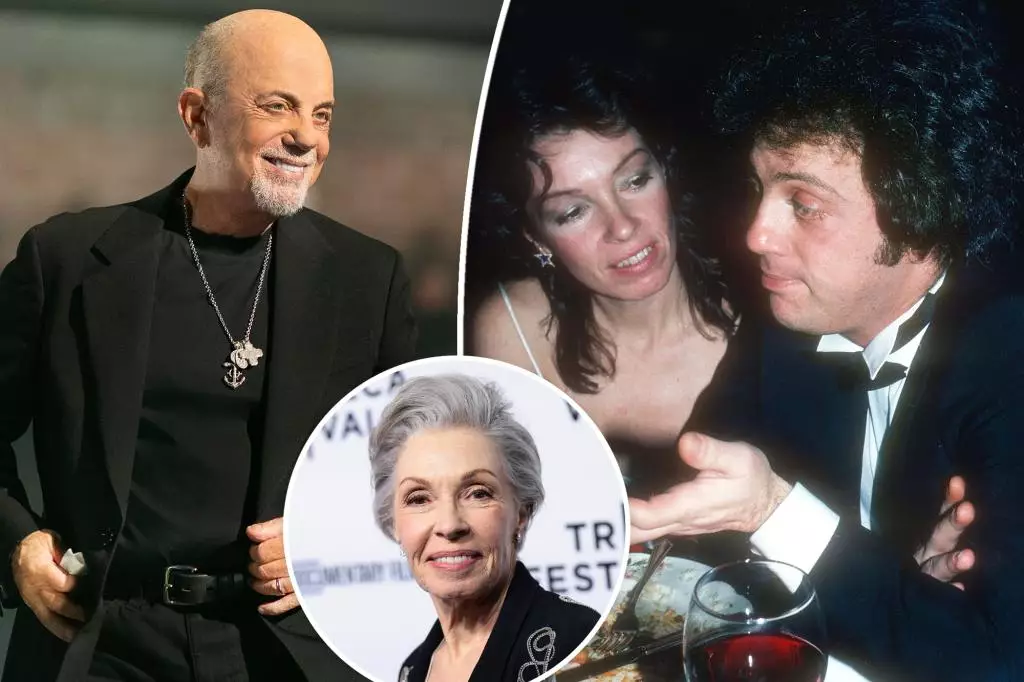Billy Joel, often referred to as the “Piano Man,” has transcended decades of music history with timeless hits and profound melodies. Yet, behind the polished façade of fame lies a complex network of personal relationships, especially when it comes to his past lovers and marriages. His first wife, Elizabeth Weber, embodies this narrative of love, loss, and growth, revealing insights into the challenging dynamics often overshadowed by the glitz of celebrity life.
Weber’s candid remarks during a recent event shed light on the realities of moving on from past relationships. Speaking at the premiere of the documentary “Billy Joel: And So It Goes,” she emphasized their status as “friendly but not close.” This statement not only highlights the necessary boundaries that often come post-divorce but also reflects a broader truth about relationships: not all partings are acrimonious, yet they remain distinct chapters in life. Weber’s quote, “I mean, we got divorced for a reason,” serves as a poignant reminder that love is sometimes ephemeral, and growth often requires distance.
Reflections on Past Relationships
Joel’s journey through marriage mirrors the evolution of his music. He has been married four times, with notable unions to models and musicians alike. His most famous romance, with supermodel Christie Brinkley, is often perceived as a fairytale, yet even that tale spiraled into divorce. Such patterns reveal the toll that celebrity life can take on personal relationships. While Weber and other ex-spouses forge new paths, Joel’s own romantic endeavors speak to a man seeking stability amidst the chaos of fame.
The intensity of Joel’s relationship with Weber began under unconventional circumstances—he fell in love while living with her and her then-husband, Jon Small. The ensuing affair brought turmoil, leading to deeply distressing moments for Joel, including suicide attempts due to guilt. Such revelations underscore the emotional intricacies entwined within his musical legacy, offering a glimpse into the vulnerable artist behind the curtain.
The Influence of Public Perception
As Weber navigates her own identity, she has faced public scrutiny for her relationship with Joel, an experience not uncommon for the partners of famous figures. During her red carpet interview, she acknowledged the harsh realities women often face in the music industry, stating, “Rock ‘n’ roll isn’t really good to women.” Her bravery in confronting this prejudice is commendable, drawing attention to the systemic issues that female artists and managers frequently contend with. Weber’s resilience serves as a testament to her character; she refuses to be defined by her past romantic entanglements, focusing instead on her own career and legacy.
Moreover, Joel’s decision to write the iconic hit “Just the Way You Are” for Weber is a double-edged sword. While it marks a beautiful moment in their shared history, the subsequent public performances of the song, in which Joel’s drummer humorously altered the lyrics, reveal the awkwardness that can arise from a once-intimate relationship becoming fodder for public consumption. Joel’s hesitant relationship with the song post-divorce hints at deeper emotional scars, a reminder of how creativity is often intertwined with suffering.
A New Chapter for Weber
Despite the bittersweet essence of their shared history, Weber approaches her past with a remarkable sense of pride and independence. Her acknowledgment of the song’s enduring popularity and her role in its inception captures a nuanced understanding of her legacy as both an artist and a woman. When she noted, “I’m proud of it. I’m happy,” it represents not just acceptance but a reclaiming of her narrative.
As Weber navigates her own life away from the public eye, it’s clear that she has carved out a distinct identity, one that goes beyond her connection to Billy Joel. With the upcoming documentary offering a new lens through which to view these intertwined lives, audiences can expect to glimpse not just the stories of heartbreak, but also of resilience, growth, and the sounds that continue to resonate through generations. The legacy of their relationship transforms into a broader commentary on love and the ever-evolving nature of personal connections within the realm of fame.

